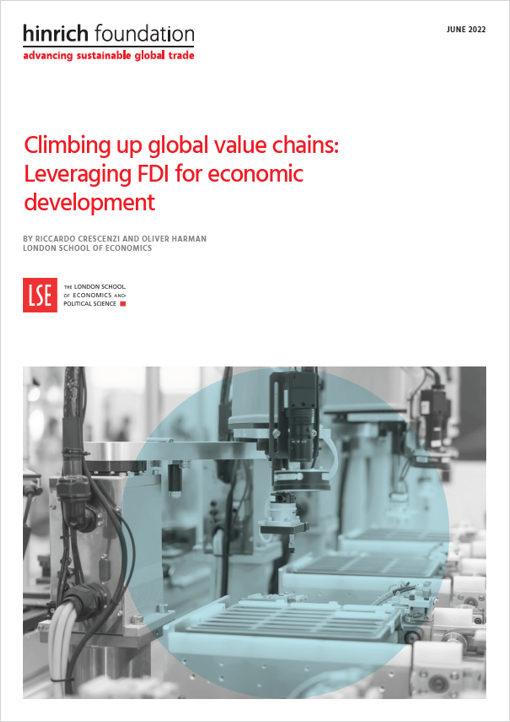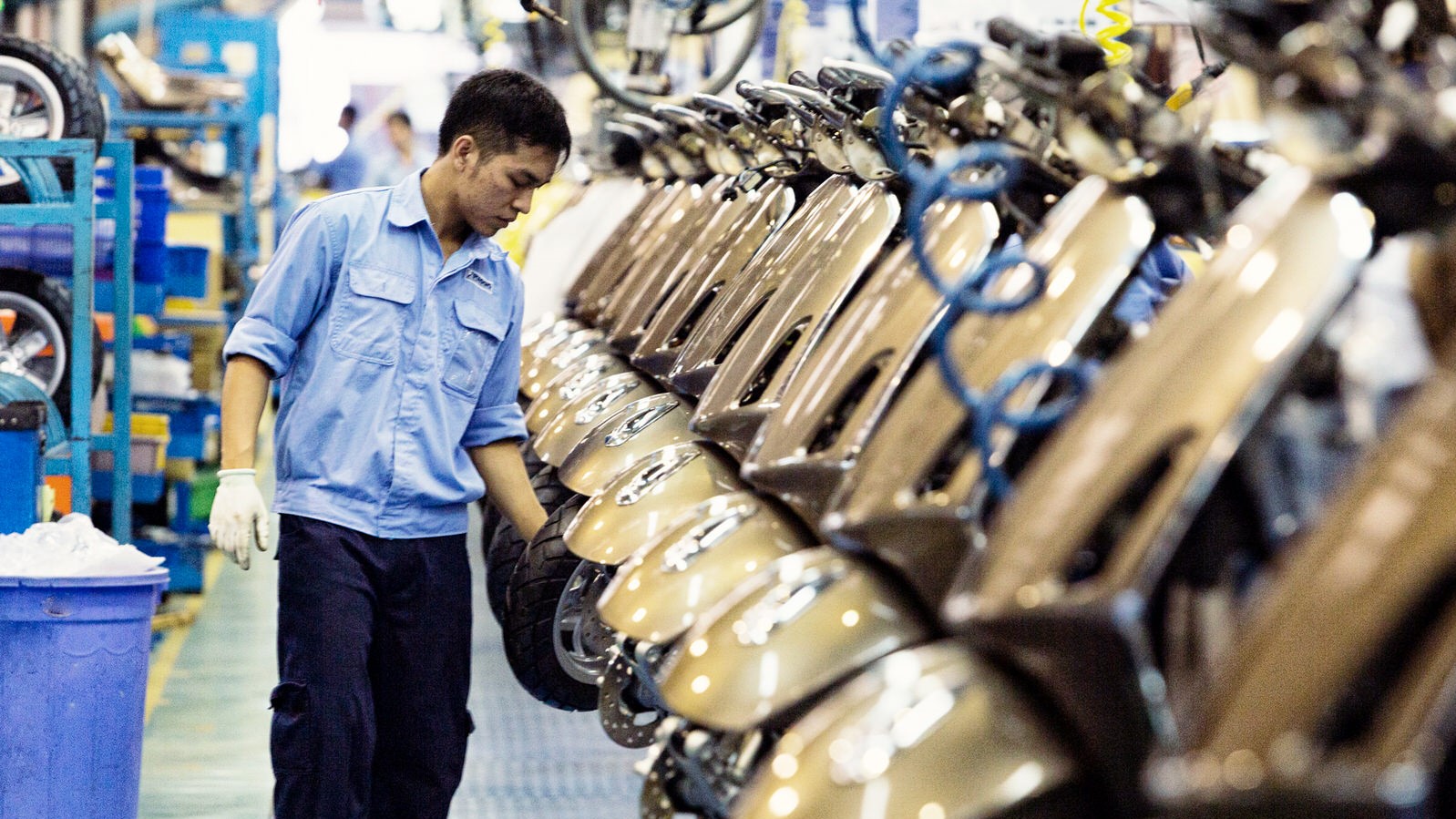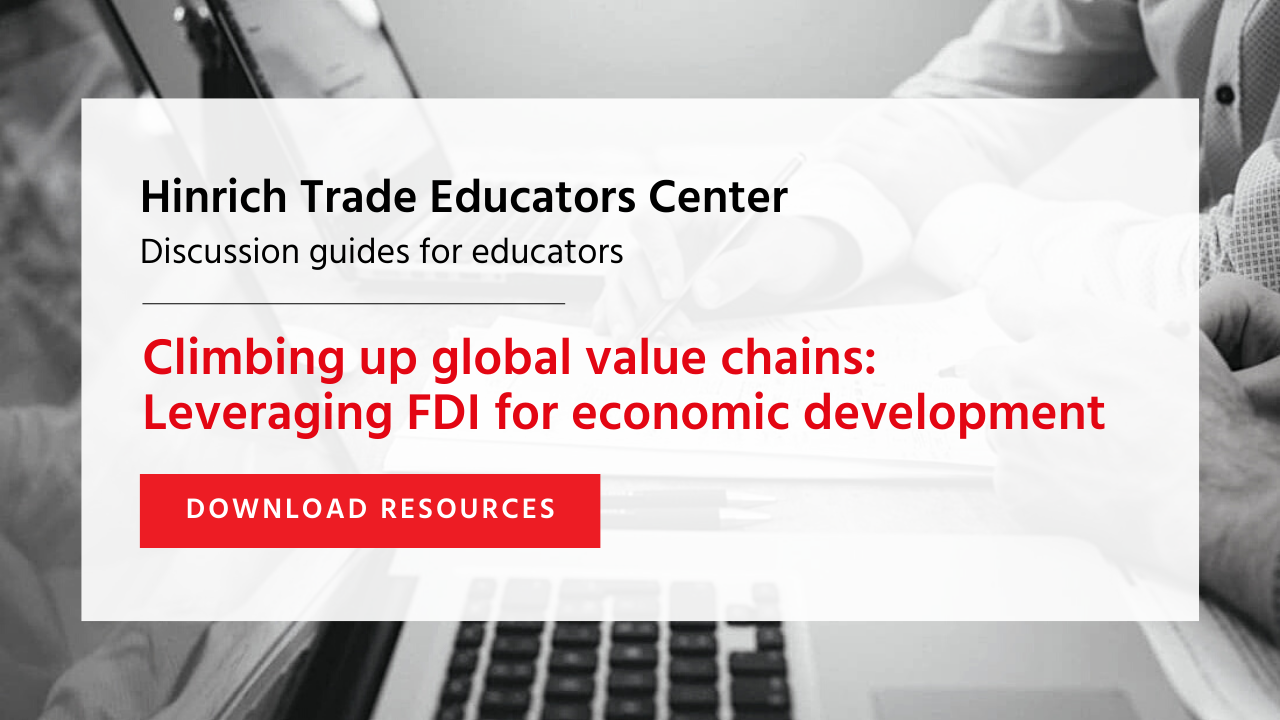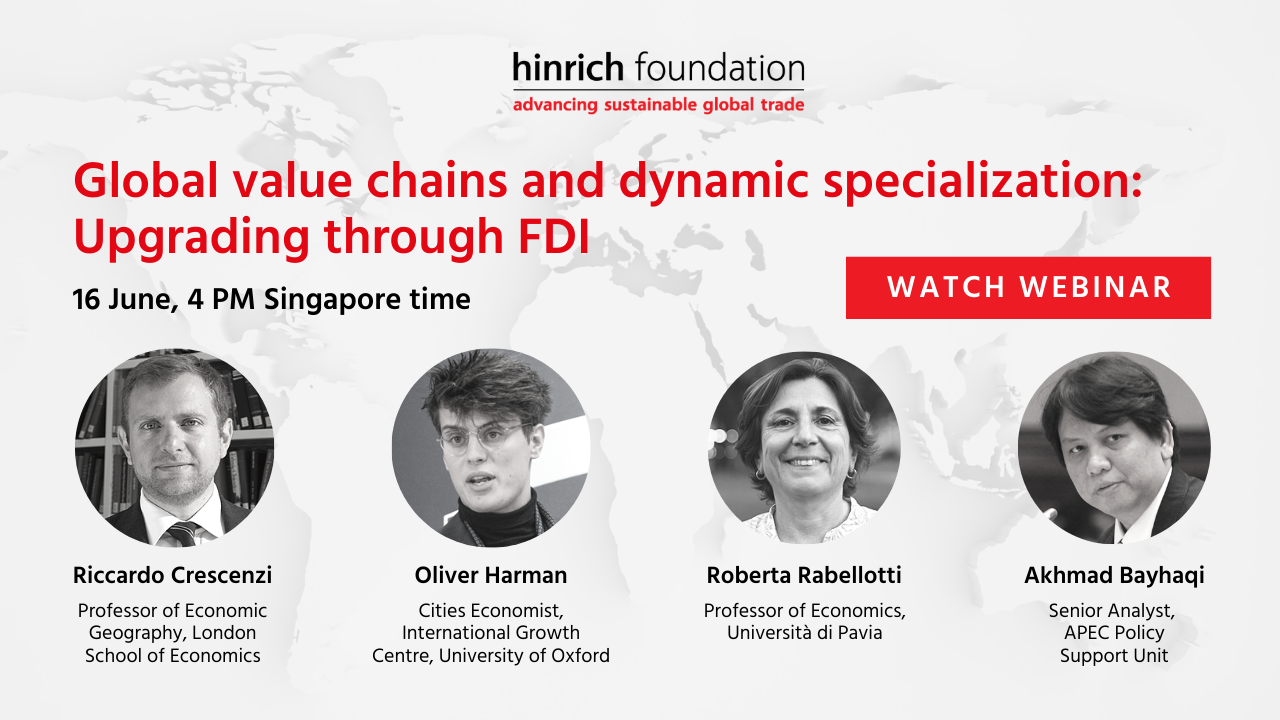Foreign direct investment
Climbing up global value chains: Leveraging FDI for economic development
Published 07 June 2022
The fragmentation of production offers new opportunities to economies seeking to take part in global value chains (GVCs). With the help of foreign direct investment (FDI), some economies are shifting their GVC participation to an increasing number of higher value-added tasks.
Bangalore - dubbed as the 'Silicon Valley' of India and one of the world's fastest growing regions - owes its success in part to policies that are sensitive to international developments and global value chains, and make the most of dynamic specialization and foreign direct investment. The two key factors – GVCs and FDI – created an ecosystem that enabled the region's economic ‘upgrading’.
Following Bangalore’s precedence, the reconfiguration of FDI networks and GVCs offers much promise to other cities and regions across Asia. This report by Riccardo Crescenzi of London School of Economics and Oliver Harman of the Univeristy of Oxford sets out to build a wider evidence base for tackling the opportunities and challenges related to this reconfiguration.
By offering a critical review of existing scholarly and policy literature on global value chains in Asia,the authors present in a systematic and critical manner the evolution of GVCs and their link to FDI and economic development. The report also examines the role of different types of firms and regions, the heterogeneous subnational geography of GVC functions, and the links between GVC indicators and regional indicators based on FDI. Lastly, in light of the conceptual and empirical gaps, the report sketches a policy framework designed to guide debates and public policies in Asia.
Learn more:
Multiple pathways to Upgrading in Global Value Chains in Asia
Upgrading is the acquisition of technological capabilities and market linkages that allow firms to enhance their supply chain competitiveness and move into higher-value activities. This Upgrading occurs in many different forms representing opportunities for decisionmakers in Asia.
Course discussion guide
Bangalore – dubbed as the ‘Silicon Valley’ of India and one of the world’s fastest growing regions – owes its success in part to policies that are sensitive to international developments and global value chains (GVCs), and make the most of dynamic specialization and foreign direct investment (FDI). The two key factors – GVCs and FDI – created an ecosystem that enabled the region’s economic ‘upgrading’. Following Bangalore’s precedence, the reconfiguration of FDI networks and GVCs offers much promise to other cities and regions across Asia.
Watch webinar recap
The reconfiguration of foreign direct investment (FDI) networks and global value chains (GVCs) offers much promise for economies across Asia. In the Hinrich Foundation webinar on the transformative power of FDI, our panel of experts highlight the role of GVC-sensitive policies, particularly at the sub-national level, in catalyzing local economic development.
© The Hinrich Foundation. See our website Terms and conditions for our copyright and reprint policy. All statements of fact and the views, conclusions and recommendations expressed in this publication are the sole responsibility of the author(s).










